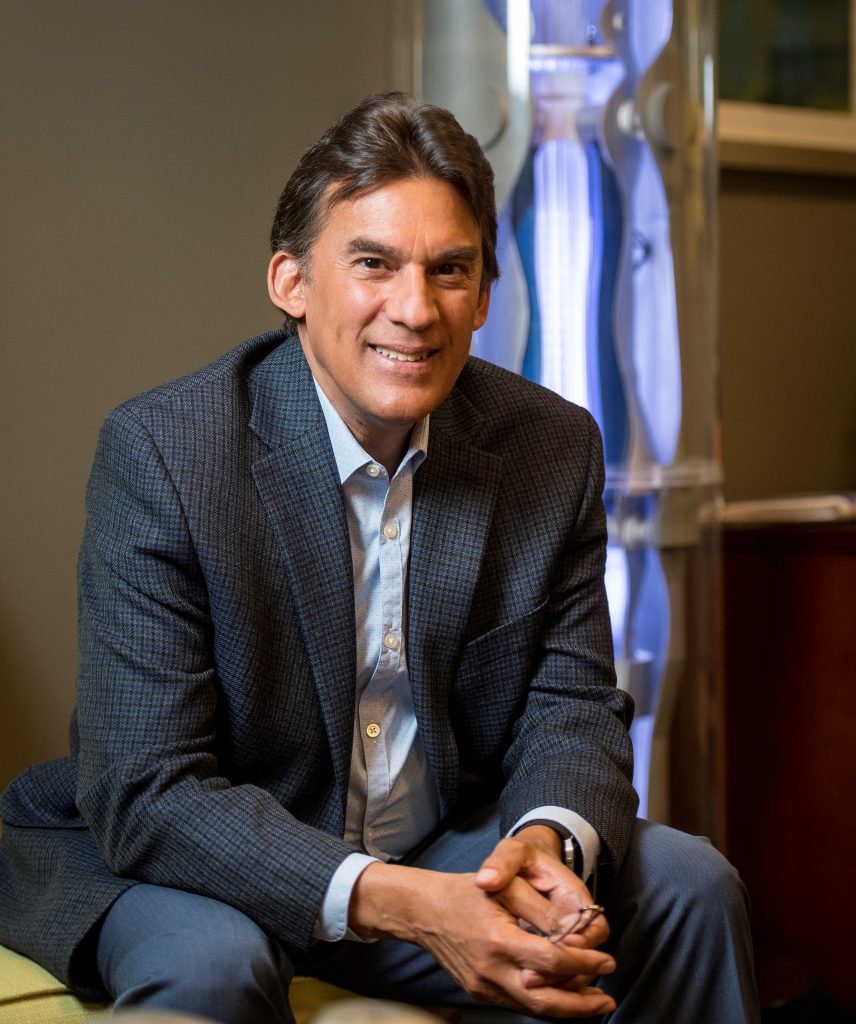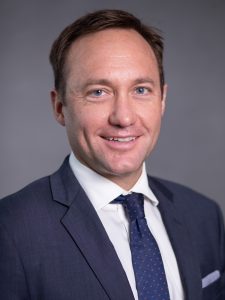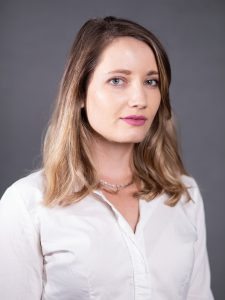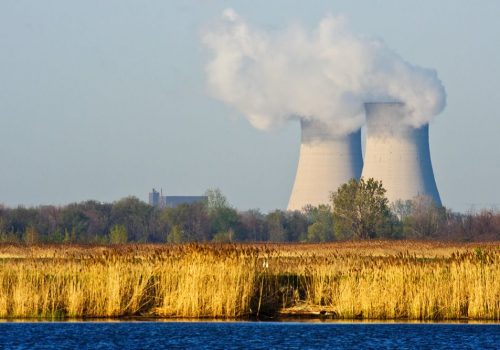As the global community continues to grapple with the coronavirus (COVID-19), the Atlantic Council is open for business. Our business, meetings, and events, however, are occurring virtually. For more information, please read an update from our President and CEO.
Advanced nuclear technologies, such as SMRs, could make nuclear energy even safer and less susceptible to proliferation. However, nuclear power’s future and its role in the energy transition will rely on government support and societal acceptance, especially for new nuclear technologies. NuScale Power is developing a new light-water modular reactor nuclear power plant to supply energy for electricity generation, desalination, and other industrial applications. Dr. Reyes describes how this groundbreaking SMR design can generate 60 megawatts of electricity using a safer, smaller, and scalable version of pressurized water reactor technology. In his presentation, Dr. Reyes explains the basic technology behind SMRs, addresses the current status of SMR commercialization, and details how the technology can be deployed to provide clean energy solutions.
Event recap
On May 20, 2020, the Atlantic Council Global Energy Center hosted Dr. Jose Reyes, chief technology officer and co-founder of NuScale Power, as part of EnergySource Innovation Stream, an online series that highlights new energy technologies with the potential to reshape the global energy system. Dr. Reyes discussed NuScale’s advancements in small modular reactor design and its prospective role in the modern energy grid. Randolph Bell, the Richard Morningstar chair for global energy security and director of the Atlantic Council Global Energy Center, provided introductory remarks and moderated the discussion.
NuScale is a triple bottom line company, committed to “people, planet, and prosperity” and improving quality of life around the world. Driven by this this guiding principle, NuScale leadership aims to develop and deploy scalable nuclear technology to provide secure low-carbon energy with far-reaching applications, such as desalination. Dr. Reyes noted that NuScale meets the needs of a growing market for small-scale nuclear reactors that can be fitted to the modern grid.
The NuScale Power Module—a reactor vessel housed inside a small underwater steel container vessel—has the ability to produce 60 megawatts (MW) of power; in other words, it is capable of meeting the electricity needs of fifty thousand homes. NuScale is currently building a twelve-module plant that will produce 720 MW of electricity for the Idaho National Laboratory. Dr. Reyes pointed to the ways these modules improve upon traditional nuclear technology, most notably by reducing construction time from five to three years. Additionally, in the unlikely event of an accident, Nuscale’s modules automatically trigger safety protocols, and thus do not require operator engagement. Such a system further enhances safety mechanisms in the market for nuclear technology. NuScale leadership has spent $100 million on testing and analyzing its technology to ensure safety and functionality. Furthermore, NuScale technology can withstand physical impact and cyberattacks, and is able to operate independently under “island mode,” which significantly increases the resiliency of nuclear plants.
Dr. Reyes’ presentation elicited strong engagement from the audience, and during the Q&A session, participants inquired about NuScale’s role in the energy transition and the challenges facing the company as it works to develop and deploy its technology. Dr. Reyes affirmed that nuclear power can resolve intermittency issues associated with renewables as countries move toward zero-carbon power systems. Despite common criticisms of nuclear power’s high upfront costs, the simplicity and safety of the NuScale modules’ design generates significant cost savings, noted Dr. Reyes. In terms of barriers to module deployment, Dr. Reyes pointed to investor risk aversion as a key challenge. However, according to Dr. Reyes, if the US government were to “provide cost-sharing, facilities, and site opportunities” it would give investors the assurances they need to support the implementation of advanced nuclear technologies.
Featuring

Dr. Reyes is the co-founder of NuScale Power and co-designer of the NuScale passively-cooled small nuclear reactor. He is an internationally recognized expert on passive safety system design, testing, and operations for nuclear power plants. He has served as a United Nations International Atomic Energy Agency (IAEA) technical expert on passive safety systems. He is a co-inventor on over 110 patents granted or pending in twenty countries. He has received several national awards including the 2013 Nuclear Energy Advocate Award, the 2014 American Nuclear Society Thermal Hydraulic Division Technical Achievement Award and the 2017 Nuclear Infrastructure Council Trailblazer Award. He is a fellow of the American Nuclear Society and a member of the National Academy of Engineering. At Oregon State University (OSU), Dr. Reyes served as head of the Department of Nuclear Engineering and Radiation Health Physics. He directed the Advanced Thermal Hydraulic Research Laboratory (ATHRL) and was the co-director of the Battelle Energy Alliance Academic Center of Excellence (ACE) for Thermal Fluids and Reactor Safety in support of the Idaho National Laboratory mission. Additionally, Dr. Reyes was the OSU principal investigator for the AP600 and AP1000 design certification test programs sponsored by the US Nuclear Regulatory Commission (NRC), the US Department of Energy, and Westinghouse. He currently serves as a professor emeritus in the School of Nuclear Science and Engineering. Prior to joining the faculty at OSU in 1987, Dr. Reyes worked nearly ten years as a thermal hydraulics research engineer in the Reactor Safety Division of the US Nuclear Regulatory Commission. He holds PhD and Master of Science degrees in nuclear engineering from the University of Maryland, and a Bachelor of Science degree in nuclear engineering from the University of Florida. He is the author of numerous journal articles and technical reports, including a book chapter on SMRs for an ASME B&PV Codes and Standards handbook.
Related experts
Learn more about the Global Energy Center

The Global Energy Center develops and promotes pragmatic and nonpartisan policy solutions designed to advance global energy security, enhance economic opportunity, and accelerate pathways to net-zero emissions.




